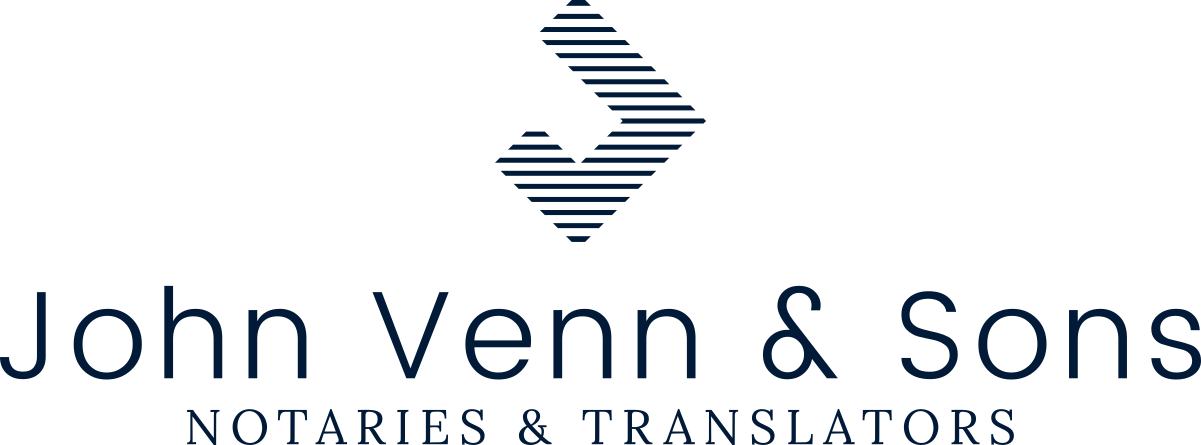The firm
John Venn & Sons (“we” or “us”) is a partnership established under English law.
Notaries practising with the firm are regulated through the Faculty Office of the Archbishop of Canterbury. The codes of conduct applicable to the notarial profession can be found at www.facultyoffice.org.uk
Our clients
References to “you” in these terms of business mean any person, business or organisation that instructs us to provide professional services.
Responsibilities and Expectations
The partners of the firm are ultimately responsible for the conduct of business, although other staff (including associates) will act on your instructions on a day-to-day basis.
You should send any e-mail enquiries of a general nature to notary@johnvenn.co.uk
Our office hours are 09:00am – 17:30pm Monday to Friday. You may leave a voice message outside these hours.
We will:
- keep you informed of progress made on your file,
- advise you of delays and, where possible, explain why such a delay is occurring,
- advise you where it becomes necessary to change the basis on which our fees are payable or calculated.
You should:
- provide us with written instructions wherever possible,
- provide us with full and accurate information regarding your affairs,
- inform us if there is any significant change in your situation.
You should be aware that:
The timescales on which we can provide assistance vary on the service being provided. A simple certification can usually be completed at the appointment. Drafting a document can take several days or longer depending on the complexity of the client’s needs. The speed at which a translation can be completed depends on the length of the document and the language and information in the source language. The timescales for arranging legalisation are discussed below.
Notarisation & identification
A primary function of a notary is to identify the client. In the case of private clients, we require proof of residential address. We will therefore ask you to produce personal documentation that can include:-
- a passport
- national identity card
- photocard driving licence
- marriage certificate or divorce judgment
- a recent gas, electricity or other bill or bank statement (for proof of address)
We may also need to establish that your company or organisation exists and that the signatory has authority to represent it. In the case of companies or organisations based in the United Kingdom, we will generally conduct our own checks. In some cases (particularly for companies or organisations established overseas) we may ask you to produce certain documents. These might include a certificate of incorporation, good standing certificate and other similar evidence. If we have to certify the signatory’s authority to represent a company or organisation, additional documentation will be requested, such as:-
- constitutional documents (e.g. memorandum and articles of association)
- a power of attorney
- board resolutions
- authorised signatory book (in the case of banks)
- extract from a commercial register (generally for foreign companies)
We will be happy to advise exactly what will be required in any particular case.
Notaries are affected by UK legislation enacted to prevent terrorism and combat organised crime and money-laundering. This legislation requires notaries and other lawyers to report suspicious transactions to law enforcement agencies.
A notary who knows or suspects or has “reasonable grounds” for suspecting that a person may be committing an offence under the legislation must make a disclosure as soon as is practicable to the appropriate law enforcement agency.
For this reason there are checks which notaries may have to make of their clients which, in many cases, go beyond the identification standards which notaries have traditionally applied. Being asked for additional identification does not mean you are under suspicion. The new identification requirements apply to all clients when they are asking notaries to authenticate documents or undertake certain other types of work.
A notary is entitled to refuse to act (or issue a restricted certification) if he or she has any doubt as to the facts or law.
Legalisation
If a document is notarised in the United Kingdom and is intended for use in another country, there may be a further formality of recognition. The procedure is generally described as “legalisation” although it is sometimes referred to as “consularisation”.
Countries which have accepted the international convention on legalisation (“the Hague Convention” of 1961) have abolished the requirement for consular legalisation. It is replaced by a single certification – known as an “apostille”.
An apostille is currently issued in the United Kingdom by the Foreign and Commonwealth Office. We arrange legalisation for our clients using the “Next-Day” service. We ensure that documents are nearly always delivered and collected by our staff from the relevant government office.
Some countries require notarial documents to be legalised by their own authorities, and the document must in these circumstances be presented to the consulate or other diplomatic representation of the country where the document is to be used. We can arrange for legalisation at all of the consulates and diplomatic missions in London.
Diplomatic missions and government departments are indifferent to commercial pressures and clients may have cause to complain about the treatment of their documentation, which can include loss, delay or refusal. Although we make our best efforts to carry out our instructions, we cannot accept liability for the actions (or the lack of action) of such bodies.
Dispatch of documents - passing of risk
At your request we will dispatch documents on your behalf. Such documents are at your risk after we have delivered them to the postal service or carrier. However, this does not affect any liability of the postal service or carrier to you in respect of the documents.
Fees
Fees are calculated using a scale which is reviewed from time to time. On request, we can provide you with a fixed price for certain work. However, we reserve the right to make additional charges if we are required to carry out additional work or if the matter proves to be unusually difficult.
Notarisation fees are usually charged per document, and the complexity, quantity and choice of language forms part of the basis on which the fee is calculated.
Legalisation services are usually charged per visit to the relevant office or consulate. The number of documents presented is not relevant.
We reserve the right to charge a fee for attending out of the office. This fee is calculated on the basis of an hourly rate from time spent out of the office. Consideration is given to special circumstances, such as health or particular needs of the person requiring the attendance of a notary.
Translation costs are chargeable on a “per word” basis. Miscellaneous costs such as consular fees, bank charges or major photocopying or postage costs may also be passed on to you.
Our minimum fee is typically charged at £85 and is subject to VAT at the current rate of 20%.
Disbursements (such as consular fees) may be outside the scope of VAT.
If we ask you to make payment of costs and fees in advance, we will hold such money in a separate “clients account”. We do not pay interest on any balance held in this account.
We may also ask you to provide funds in advance in order to cover such things as consular disbursements, especially when these amounts are likely to be significant.
Credit will not be given on fees unless previously agreed with a Partner. Our terms for payment of all invoices rendered are that they be settled within 30 days. Should settlement not be forthcoming within this period, we reserve the right to charge interest at 5% above base rate on all sums outstanding.
Services provided off premises
The Consumer Contracts (Information, Cancellation and Additional Charges) Regulations 2013 (“the Regulations”) give particular rights to consumers who enter into “off-premises contracts” with businesses.
The following terms will therefore apply if you wish to instruct us to provide services at your home or private address and you have done so for purposes that are wholly or mainly outside your trade, business, craft or profession.
You acknowledge that the Regulations do not apply to your contract with us to the extent it relates to the creation of immovable property or of rights in immovable property.
To the extent that the Regulations do apply to your contract with us, you are entitled to cancel without any reason or liability if you do so within 14 days of giving your instructions.
However, in our experience we find that clients do not want us to delay acting on their instructions. By accepting our terms of business you therefore request us to act on your instructions immediately. You instruct us to begin work and provide the services requested before the end of any cancellation period that may exist in law. You agree to waive the right given in the Regulations to cancel without liability. However, you still retain your right to cancel your instructions at any time. If you decide to do this you should do so in writing. You agree to be liable for our fees for any work that we have already carried out on your behalf.
You agree that the information given here and your instructions to start work constitute confirmation of your contract with us. You accept that the information contained in these terms of business has been addressed to you personally. You also agree that the information has been provided in a durable medium which enables you to store the details in a way that is accessible for future reference.
Insurance
John Venn & Sons maintains insurance cover of £2,000,000 against claims of professional negligence arising from the firm’s business activities and against financial loss suffered by a third party in consequence of any dishonest or fraudulent act or omission by any partner or employee in connection with his or her practice as a notary.
Complaints
If you are dissatisfied with our services you have the right to make a complaint. For ease of reference we publish separately details of how to do this in our Complaints Procedure Please contact us if you require assistance.
Privacy Notice
Details of how we use data can be found in our Privacy Notice.
Applicable law and jurisdiction
The contractual relationship between you and us shall be governed by English law. In the event of any dispute you agree that the courts of England and Wales shall have sole jurisdiction.

